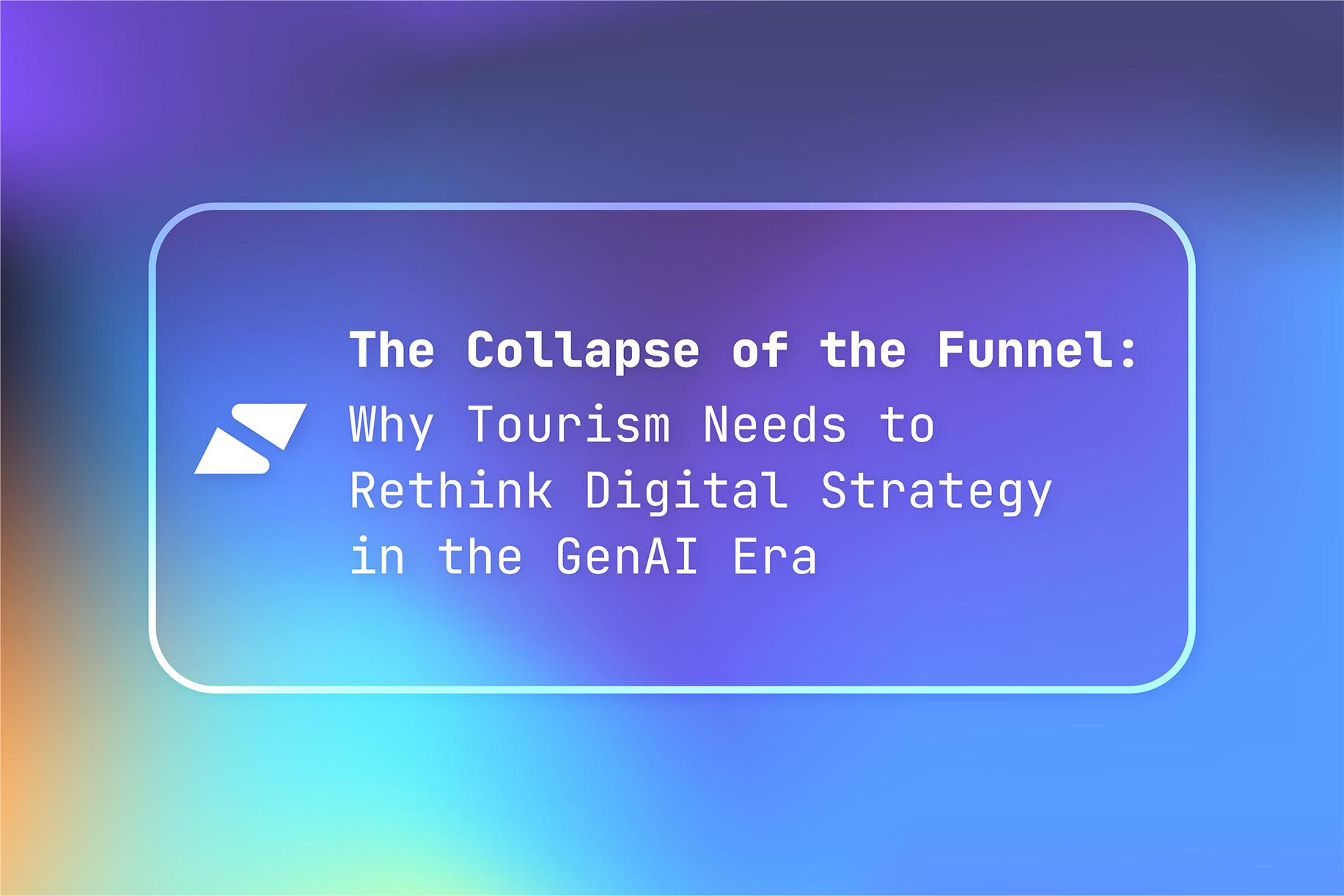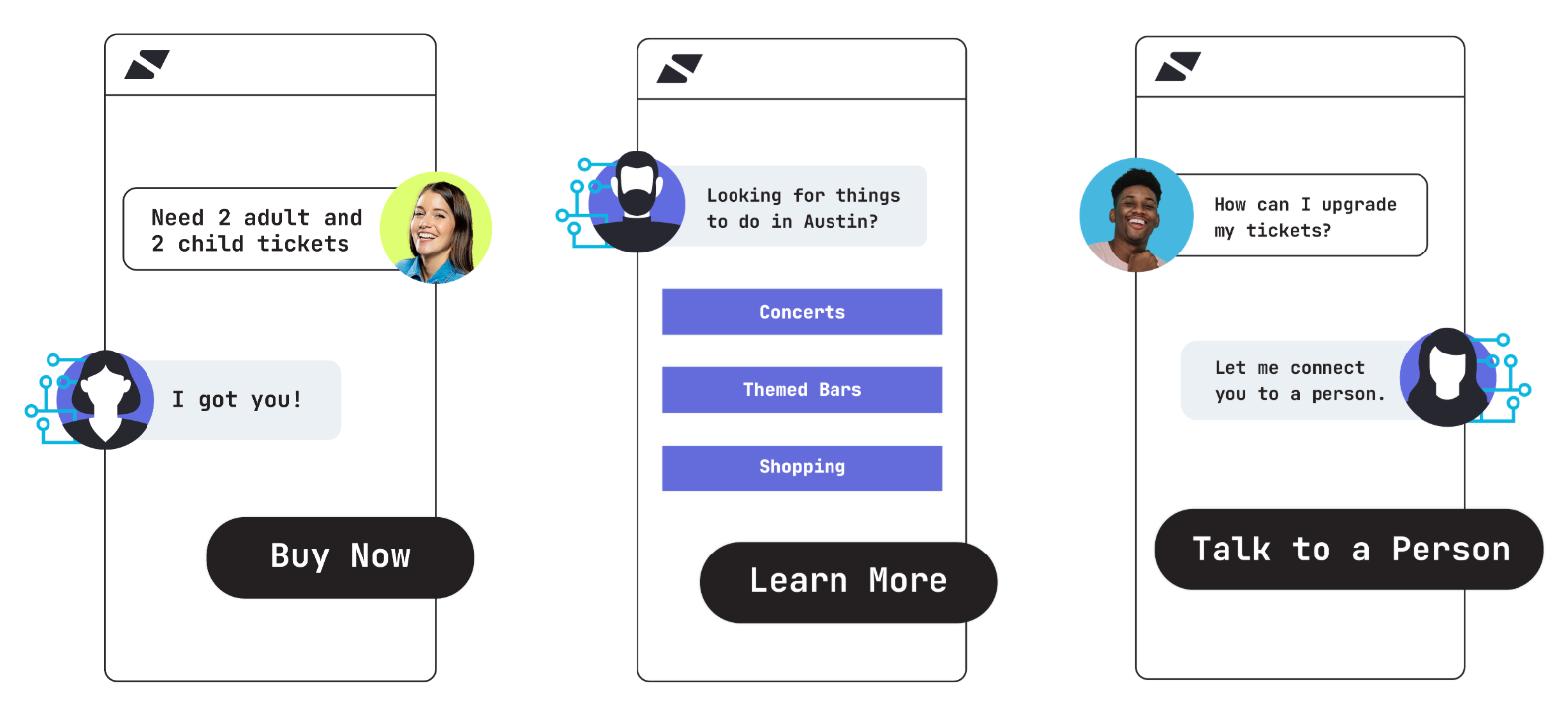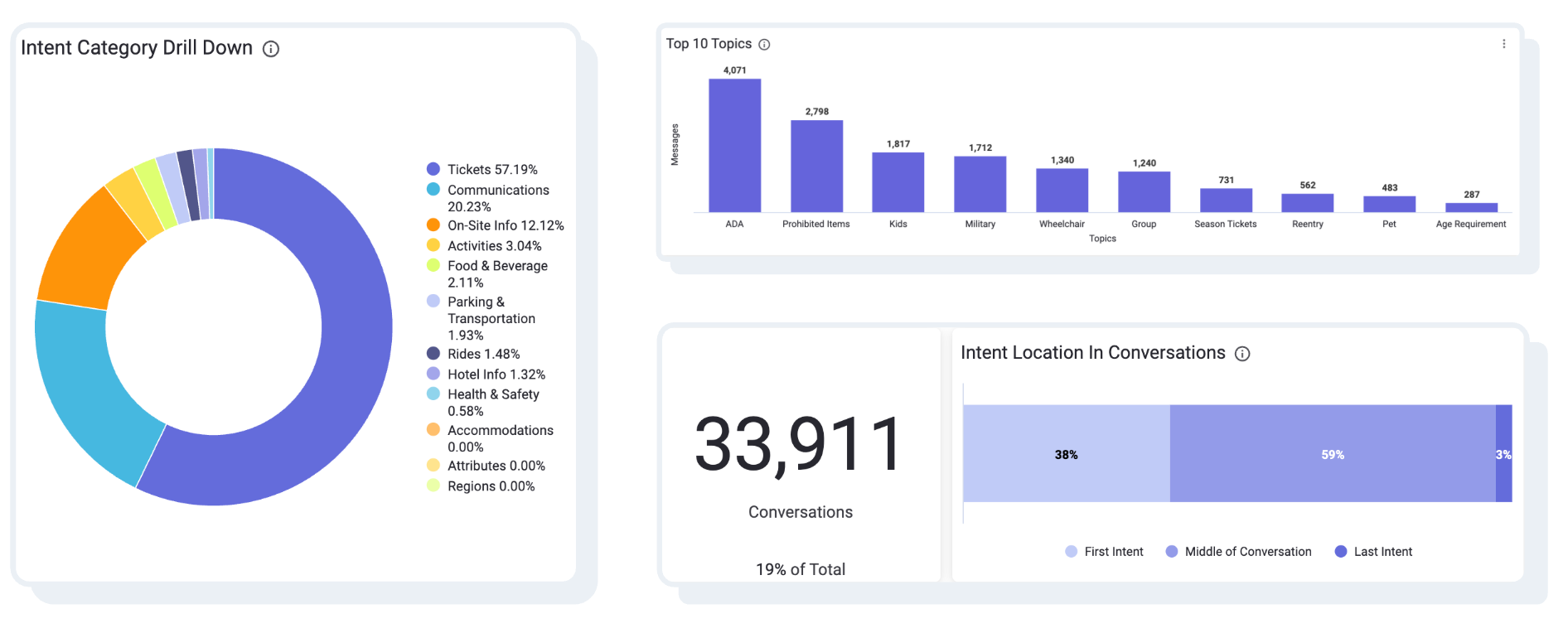The Collapse of the Funnel: Why Tourism Needs to Rethink Digital Strategy in the GenAI Era

The way visitors make decisions online is fundamentally changing. Search as we know it is collapsing. Discovery, comparison, and conversion are no longer distinct stages; they now happen in a single AI-powered conversation.
This change isn’t theoretical. It’s measurable, accelerating, and already disrupting how tourists plan their experiences. Recent insights show that four out of 10 travelers worldwide have used AI-based tools for planning a trip. For destination marketers, tour operators, and attraction brands, it's time to face a new digital reality: if you're not recommended by the AI, you might not exist.
What’s Changing in 2025
1. Visitors No Longer “Search”, They Ask AI to Plan
Prompt → Recommendation → Purchase
That’s the new funnel. AI-powered search through ChatGPT, Gemini, Perplexity, and Google's AI Overviews has fundamentally collapsed the entire decision journey.
Instead of searching for "best attractions in Miami," users are prompting:
“Plan a 3-day Miami itinerary with art museums, food tours, and kid-friendly stops.”
LLMs respond with full recommendations, and if your business isn't mentioned, you may be excluded from consideration entirely.
The challenge goes beyond visibility. AI tools often pull content without attribution, so your data may fuel answers while your brand goes uncredited.
That’s why frameworks like Model Context Protocol (MCP) matter. MCP lets tourism businesses securely connect their data to AI with rules, attribution, and updates intact. Instead of being scraped, your content is delivered accurately and under your control.
Why It Matters: AI is the new search engine and the new SEO. To compete, your brand must be both discoverable and accurately represented in AI-driven recommendations.
2. Your Website’s Role Has Changed
For decades, websites acted as the front door for tourism marketers. But in 2025, discovery happens elsewhere: inside AI-driven conversations. By the time guests land on your site, they’ve already been pre-qualified and curated by AI.
Your website is no longer the first step in the funnel; it’s the last. That means reducing friction, surfacing clear calls-to-action, and most importantly, offering AI agents that can continue the conversation, guiding and completing a purchase or booking in the moment.
3. AI Agents Are Becoming the Digital Front Desk
Modern AI agents aren’t just answering questions. They’re offering personalized itineraries, selling tickets, and triggering backend actions like sending texts or emails. They serve as 24/7 concierges embedded directly into your digital experience. They capture zero-party data on guest questions, giving you powerful insights to launch targeted campaigns, optimize operations, and more.
When a user asks,
“What’s the best tour for a rainy day in Seattle this weekend?”
An AI agent connected to your inventory can reply:
“The Seattle Underground Tour is a popular option that runs rain or shine. Would you like to book a tour for Saturday at 2 PM?”
It’s now a transactional interface, capable of replacing several steps of a traditional funnel in a single moment, helping you convert faster while reducing friction, all in a single conversation.

Why It Matters: Guests increasingly prefer to book within the conversation. If your digital experience ends in a dead-end or FAQ page or is not optimized for mobile, you're missing revenue.
4. From Traffic to Intent: The New Data Reality
Page views and clicks no longer tell the story. In an AI-first world, the most valuable signal is intent data: the questions guests ask, the tickets they attempt to buy, and the actions they take on your website, mobile app, or in chat.
This is the new goldmine for tourism businesses. Instead of measuring web visits, you can now track meaningful visitor actions: ticket sales, inquiries, reservations, and package enhancements, all directly from AI-powered conversations. This data reveals not just what guests looked at, but what they intended to experience.
For marketers, that means shifting campaigns from broad impressions to targeted actions tied to demand signals. For operators, this means optimizing staffing, availability, and offerings based on what guests actually request in real-time. For the guest experience, it means creating a journey that feels personalized, attentive, and effortless.

5 Things Tourism Brands Should Do Right Now
1. Audit Your Content for AI Discovery
Make sure your website and listings use structured data, like schema.org tags, and contain clear answers to common visitor questions.
2. Launch an Action-Oriented AI Agent
Install an AI agent on your website that can do, not just answer. Look for agents that support booking, upselling, and itinerary building.
3. Syndicate Content to Public LLMs
Use tools like Model Context Protocol to structure and distribute your content so that ChatGPT, Gemini, and others can use it in responses.
4. Embrace Conversational UX
Design your digital experience around mobile-first and chat-first interfaces. If your best content is buried in menus or footers, the user won’t find it, or the AI won’t cite it.
5. Use Conversational Analytics
Track what users ask and where they drop off. This is your new funnel. Tools like Satisfi Labs’ Analytics Dashboard can help uncover visitor intent trends, and sales & marketing opportunities.
Final Takeaway
In 2025, tourism marketing is no longer about driving traffic to your website, it’s about driving action within conversations. If your business isn't being recommended by AI, you're not part of the decision journey.
Tourism brands that adopt conversational experiences, structure their content for LLMs, and deploy AI agents that act, not just talk, will be the ones guests see, trust, and book.

